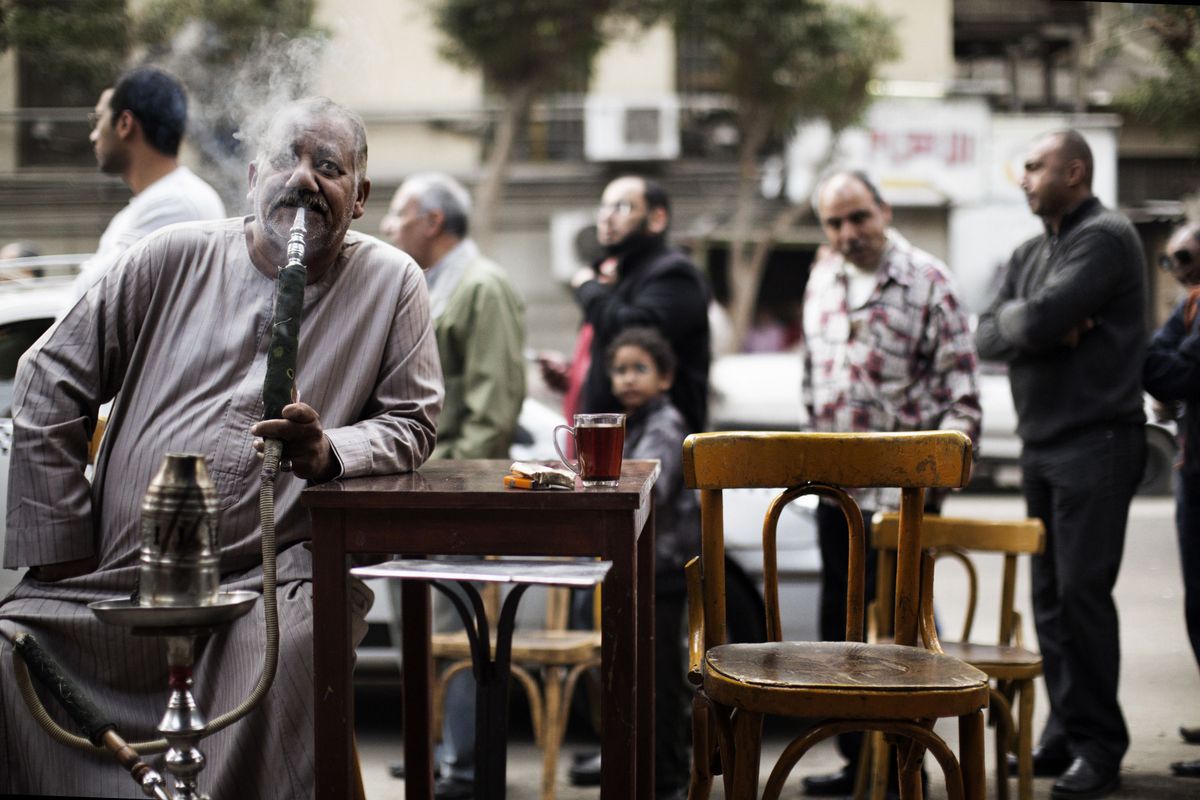By Chitra Kalyani
Alongside the ancient pharaoh King Tutankhamun, a display of more recent Egypt was presented in Frankfurt through the “Egyptian Festival of Culture.” As part of the literary program at the fest, excerpts from four emerging Egyptian authors’ works were translated and read in dramatized form by German actors.
“It is important for German audience to hear new voices,” said Karam Youssef, owner and manager of Al Kotob Khan bookstore, at the literary event which took place at the end of March alongside the travelling exhibit entitled “Tutankhamun” showcasing precise replicas of the ancient pharaoh’s tombs and artifacts.
Al Kotob Khan has had its own publishing house for two years. Four of its published authors, who also happen to be winners of the Sawiris prizes for their works, were presented at the festival. These writers “expressed a glimpse of contemporary life,” said Youssef. Unlike former literature that featured “folklore,” these books had “modern” and urban concerns seen in “the questions they ask and the fight to find place,” she added.
The authors also avoided stereotyping the Orient or women, as is the case with the translations. The translation of Al Taher Sharqawy’s “Secret Visits” was accompanied by a footnote where the “author made it clear that the character doesn’t represent all women,” said Youssef.
Correcting an inquiry about what one could find in common among emerging writers, Yasser Abdellatif said, “I am not a new writer.” Indeed, Abdellatif has already authored both poetry and fiction.
Abdellatif presented a work from his collection of short stories “Younis fi Ashaa el Hout” (Younis in the Whale’s Guts) which refers to the tale also known as “Jonah in the Belly of the Whale.” The story is a metaphor for the protagonist’s “journey within a huge mall in North America,” says Abdellatif.
The story translated for the German audiences — “Fe Madinet el Talal w Nahrain” (In the City of Hills and the Two Rivers) — was also about another journey. It follows an Egyptian who travels to Lyon to meet his uncle and lives with immigrants.
The stories are about displacement, admitted Abdellatif, who himself resides in Canada. So was “displacement” caused by travel what constituted the “modern” concern in his work? No, said the author, explaining that some of his fiction is often about displacement within Egypt, with characters experiencing a sense of alienation.
Meanwhile, other themes such as dreams or dream-like drug-induced states, memories of childhood and ghosts also featured in his writing.
Travel across languages was the theme of the excerpt chosen from Mohamed Rabie’s novel “Kawkab Ambar” (Amber Planet), which also features a character called “Kawkab.” In direct conversation with the presentation of Arabic texts in German, the chosen excerpt related an “imaginary scene in an imaginary office that translates books,” said the author.
An architect who builds a translation office as a gift to his wife decides, upon her death, not to open the place. Yet others involved begin to use the office. However, “when they moved [the office] they didn’t know how to put the [translation] machine,” said the author. The office, which was in fact much more — a symbol of love — cannot be carried over, or in other words ‘translated’ elsewhere, said the author.
It is ironic, said Rabie at the event that it is impossible to translate in full. “Always, there are failures,” he told DNE.
Mohamed Abdel Nabi too chose an excerpt from his novel, “Rogoo Sheikh” (Return of the Sheikh). Titled “Ostoret el Romeo” (Legend of Romeo), the stand-alone excerpt is about a character called Ramadan – nicknamed Romeo.
“It’s very Egyptian,” said Abdel Nabi, explaining why he chose this section, adding that Ramadan is a “delinquent” that smokes hash, has relations with many women. “To know better,” says the author, “you have to read the book.”
Writers agreed that while they had spoken, even as they read from their Arabic texts before translations were read by actors, one can never be sure whether the message has arrived. Perhaps these words remain as far removed in time and space as the two Egypts — ancient and present — showcased at the exhibit.
For the full festival program, visit www.tut-ausstellung.com.




